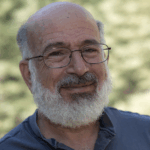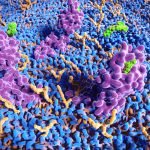Practicing Rational Medicine
Naturopathic Perspective
Jacob Schor, ND, FABNO
A patient with a rare cancer came to see me recently and left me pondering an interesting phenomenon. This patient has worked as a police detective for decades, an occupation that entails the careful collection and evaluation of evidence. Yet he surprised me by bringing in a shopping bag filled with the oddest collection of concoctions, all of which he was taking under the assumption that they might cure his cancer. As accustomed as I am to being labeled a purveyor of unproven remedies and nostrums by certain medical doctors in my community, what this patient was taking stretched my credulity past its limit. I can be rather accepting of magical thinking in my patients, but this was extreme. So much for evidence, I thought to myself. Instead of EBM (evidence-based medicine), this is MBM (magic-based medicine).
A Case of Arnica Syndrome
The patient was suffering from what I call “Arnica syndrome.” I see this often enough in practice – a seemingly rational person is treated with homeopathic Arnica after an injury and experiences a miraculous response. Learning how homeopathic medicines are prepared, ie, that whole dilution business, the patient is initially startled, and then plunges into a fog of confusion. While clearly recalling the experience of the remedy’s efficacy, he also now realizes that it’s impossible for the homeopathic remedy to do what it seems to have done. His observations and memories contradict what his logical understanding of the nature of the world tells him is possible. Something cracks – not a paradigm shift, but rather a crack in his ability to trust logic.
Patients like this experience a kind of mental break, some sort of dissociative crack-up. They conclude that if this one impossible thing is true, then – with their broken logic – all impossible things might be true. They conclude that logic can no longer be relied upon and that almost any illogical claim could also be true.
Some practitioners love patients in this condition because they can sell them any supplement, any concoction, or any belief, with ease. Personally, I don’t like to deal with people like this. I much prefer rational patients, as I am uncomfortable with the opposite. After all, these people are making decisions that will have major impacts on themselves and their families. I want them to make smart choices.
There’s a fine line between 1) being on the cutting edge of new advances in nutritional science or translating new lab discoveries into practice; and, on the other side of the coin, 2) patients telling me they’ve decided to ignore their oncologists’ advice and instead rely on the interventions that are better described, to use the Latin, as “bovem de stercore.”
We want patients that are open-minded and willing to make lifestyle changes and perhaps shift their paradigms a bit. However, I prefer patients remain rational. The idea that the practice of medicine should be rational goes back to a time even before Hippocrates. Still, Hippocrates is usually referred to as the “father of rational medicine.” He turned away from the divine notions of medicine and taught that observation could be used as the basis of the practice of medicine, that the body responds in a predictable manner, and that prayer, sacrifice, and other beliefs do not change the disease process. Keeping the body “in balance” was the key to health.1
We must remember that the understanding of physiology back in the Hippocratic era still relied on humoral balance, ie, keeping blood, phlegm, and yellow and black biles in a state of balance. Perhaps, in our modern mindset, this was not the most rational body of knowledge to rely upon, but at least it was a start.
Our reliance on rational medicine is in part what defines our profession as different from many other practitioners who claim to be practicing “natural medicine,” such as those trained through unaccredited diploma mills who call themselves “naturopaths.” We naturopathic doctors lean toward rationality. We lean away from pendulums, away from implausible diagnostic tests, away from remedies that may be imbued with immeasurable, near magical, vibrational qualities. (Well, we mostly rely on rational medicine. I still use Arnica and a long list of other homeopathic remedies, as irrational as doing so might seem to some.)
Might we define naturopathic medicine as “rational nature cure”?
Defining Naturopathy
How we define ourselves has been a frequent topic of my inner conversations in recent months.
Last fall I sat in on a lecture given by Josh Goldenberg, ND, to a group of medical students. This is the Josh behind the Doctors’ Journal Club, the Dr Goldenberg who is currently the president of GastroANP. His lecture summarized the Delphi process that he and colleagues have undertaken to study the naturopathic treatment of irritable bowel syndrome. He first talked about what naturopathic medicine is. And, as all of us have done for the past several decades, he defined naturopathy by a set of principles.
As Dr Goldenberg went down that list of principles we use to define our medicine, I watched the students as they watched Josh, and I realized that we have a problem. These soon-to-be medical doctors were baffled. Our principles of naturopathic medicine do not define it, at least to an intelligent group of medical students who are familiar with the Hippocratic oath. These principles, in fact, define a physician of any school, including medical doctors; they are not unique to naturopathic medicine. They were developed by medical doctors, promoted by medical doctors, and eventually added to the Hippocratic oath taken by medical doctors. Quoting these principles might actually demean us, as they suggest that we are merely MD copycats, trying to impress the public with a bit of Latin. Naturopathic doctors may share the conceit that we adhere to these ideals better than other physicians, though there are those willing to debate that notion.
A good definition describes its object in a way that draws a boundary around it and illustrates how it differs from other, similar objects. The traditional definitions all state that naturopathy is a distinct school of medicine. But if this is the case, then using these principles actually argues for the opposite by suggesting that we are just like other schools of medicine.
This would be like creating and promoting a new religion that differs from all other religions, and then, when asked how it differs, presenting the Ten Commandments as proof.
Our Practice Principles Do Not Define It
For us to claim, “Primum non nocere” as a defining statement of naturopathic medicine makes no sense. Auguste Chomel, MD, the French clinician who invented the term in the mid-1800s while training his medical students, was born a good 2200 years after Hippocrates. The “non-nocere” phrase was only added to the Hippocratic oath around 1850.2 Our usage of this line suggests that rather than being a distinct school of medicine, we are emulating medical doctors.
Sadly, the same can be said for all of our defining principles. They were invented by medical doctors and used for years before we laid claim to them. They originated with medical doctors to describe the role of a physician. They describe no aspect of practice about which we might say, “That’s unique to NDs. MDs and DOs never ever think this way.” Most of these principles came into use long before naturopathy existed.
The origin of “Tolle causam” is less clear. The earliest print reference I’ve found is in Samuel Hahnemann’s Organon, aphorisms 28-29: “Tolle causam! they cried incessantly. But they went no further than this empty exclamation. They only fancied that they could discover the cause of disease; they did not discover it, however, as it is not perceptible and not discoverable.”3
At one time it was common for the educated to be able to read and write in Latin. Modern websites supply various translations for Tolle causam: treat the cause, identify and treat the cause of the disease, etc. Translation? Google provides the most literal translation: “Take the case.”
The Origin of Our Principles
Why don’t we just use a regular definition? Back in 1987, our eminent colleagues, Jared Zeff and Pamela Snider, were tasked by Kathy Rogers, ND, the then-AANP president, to come up with a definition for naturopathic medicine. Past experience suggested that members of our profession could not agree on a definition, so our clever friends sidestepped the argument and asked what they could agree on. This ploy was straight out of that book, Getting to Yes, that was so popular at the time. From this process emerged our list of principles. This was a great strategy for avoiding conflict and confrontation and moving the process forward. Our profession had more important things to do at the time, like getting our schools accredited, creating a national licensing exam, basically creating a profession almost from scratch. We didn’t have time for divisive arguments. Our problem today, however, is that we are trying to promote a profession without being able to clearly define what it is.
Thus, I’ve been looking for the words to describe naturopathic medicine in a way that sets us apart. I like the term “rational,” as it at least sets us apart from many other alternative medicine practitioners. It suggests we make rational suggestions, and that we analyze data and research in a way that is evidence-based. We do not suggest that patients need to believe in our medicine or that faith is required to effect healing.
A percentage of my readers are going to be grossly unhappy with these thoughts. What I’m writing here may come off as sacrilege. So be it; it seems that the older I get, the more often I manage to offend my friends.
A Work in Progress: My First Try
In fact, I’ve been making lists. (Not of offended dear friends, though I probably should do that as well.) The lists are of key aspects of naturopathic medicine that I feel may define who we are in contrast to other doctors. Lists that might help define the boundaries of naturopathic medicine. Let me share my current iteration.
Naturopathy is a distinct school of rational medicine that:
- Relies on the innate homeostatic mechanisms in the body to restore balance.
- Utilizes natural agents, elements, and exposures to restore this balance, often through hormetic actions that stimulate and provoke adaptive responses.
- Appreciates the restorative and nourishing influences that exposure to nature and the natural world have on health.
- Acknowledges the deep and lasting negative impacts on health that exposure to toxic substances have.
- Knows that many illnesses may be relieved through proper nutrition and that supplying key nutrients may restore health in cases of deficiency and increase the capacity to maintain and preserve good health.
- Believes in the healing action brought on by sincere human interactions.
- Believes that the natural intelligence within the body is oftentimes adequate to restore homeostatic balance without further intervention, and that often the role of the physician is as passive observer or to provide gentle direction to trigger an adaptive response to restore balance of function.
This is where I’ve gotten to so far. I don’t think this effort is anywhere near adequate. I do know that it is time for us to come back to the table and ask ourselves, “What is naturopathy?”
I’m open to your rational suggestions.
References:
- Greek Medicine: Hippocrates and the Rise of Rational Medicine. Last updated February 7, 2012. NIH Web site. https://www.nlm.nih.gov/hmd/greek/greek_rationality.html. Accessed June 18, 2018.
- Herranz G. Why the Hippocratic ideals are dead. BMJ. 2002;324:1463.
- Hahnemann S. Organon of Medicine. Translated from the Fifth Edition by R.E. Dudgeon. Chicago, IL: Medical Advance Co. Publishers; 1895: 2.
Image
 Jacob Schor, ND, FABNO, along with his wife Rena Bloom, graduated from NCNM in 1991; they have practiced in Denver, CO, ever since. Both have been active in state association politics, taking turns as president of the currently named Colorado Association of Naturopathic Doctors. Dr Schor has also assumed various leadership positions in the Oncology Association of Naturopathic Physicians, has served on the AANP Board of Directors, and has periodically chaired the AANP’s speaker selection committee. He is Associate Editor of the Natural Medicine Journal and is a regular contributor to the Townsend Letter. Dr Schor was the first recipient of the AANP’s “Vis Award” and remains honored and humbled to have received such recognition.
Jacob Schor, ND, FABNO, along with his wife Rena Bloom, graduated from NCNM in 1991; they have practiced in Denver, CO, ever since. Both have been active in state association politics, taking turns as president of the currently named Colorado Association of Naturopathic Doctors. Dr Schor has also assumed various leadership positions in the Oncology Association of Naturopathic Physicians, has served on the AANP Board of Directors, and has periodically chaired the AANP’s speaker selection committee. He is Associate Editor of the Natural Medicine Journal and is a regular contributor to the Townsend Letter. Dr Schor was the first recipient of the AANP’s “Vis Award” and remains honored and humbled to have received such recognition.









